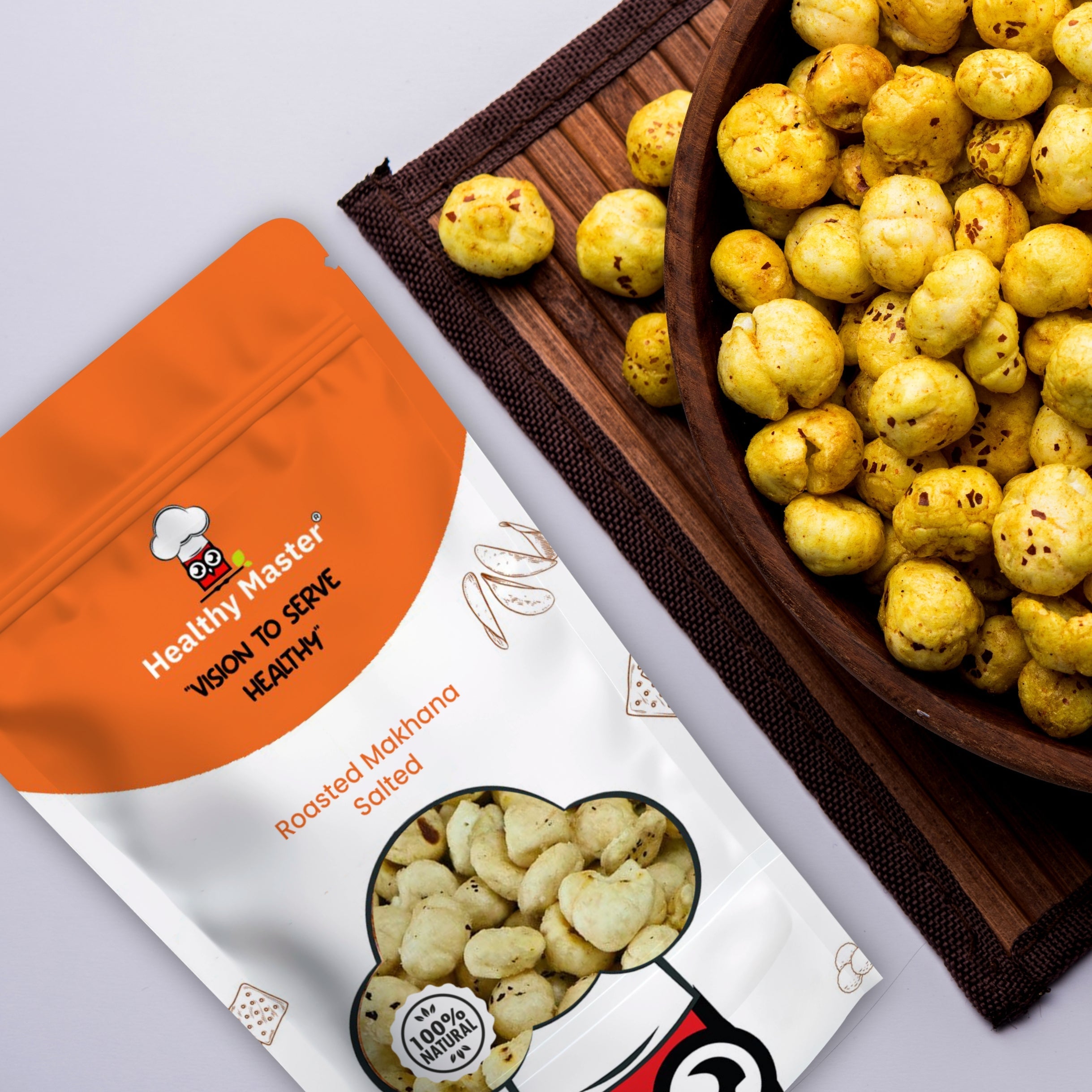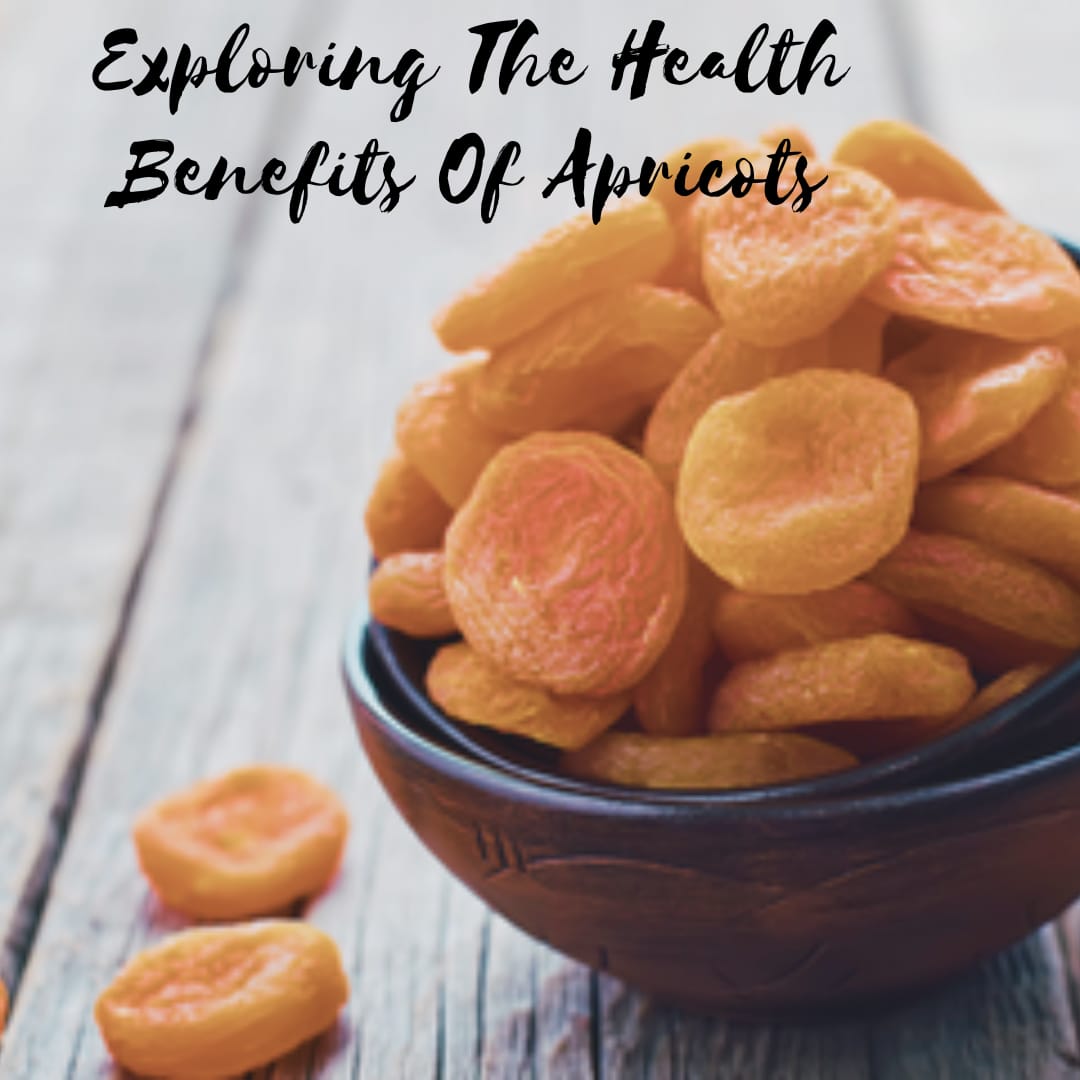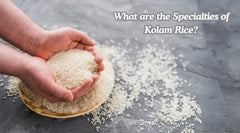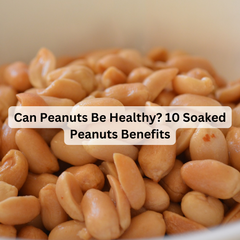Exploring the Health Benefits of Apricots
Apricots are stone fruits that are filled with flavor which do great in complimenting your tastebuds and also come with loads of health benefits. These fruits are home to Asia but are found in abundance around the world.
The main reason why apricots are praised is for their abundance in vitamins, especially vitamin A. These tiny fruits can meet a sizable amount of your daily vitamin A requirements with just a handful.
This necessary nutrient is critical for supporting healthy cell growth and development, preserving clear vision, and enhancing your immune system. In reality, apricots are a powerful ally in keeping your body's defenses against infections strong and safeguarding your eyes from age-related problems.
Additionally, apricots are a terrific source of dietary fiber, which is essential for the health of the digestive system. Fiber maintains healthy gut flora, and regular bowel movements, and reduces constipation. Apricots are a healthy choice for those with diabetes or for those who want to keep their blood sugar levels under control and have consistent energy levels throughout the day.
Apricots are rich in antioxidants including vitamin C and beta-carotene in addition to vitamins and fiber. These substances work to fight off free radicals in the body, which lowers the risk of chronic illnesses and supports healthy skin. A superfood worth including in your daily diet, apricots stand out for their delicious taste and a variety of health advantages.
The Nutritional Value Of Apricots

A broad variety of necessary nutrients, vitamins, minerals, and antioxidants are provided to your body when you include apricots in your diet in addition to enjoying a tasty snack. These fruit-filled with nutrients might be a great addition to your everyday diet.
Apricots are known for their high nutritional content first and foremost. The amount of vitamin A in just one cup of fresh apricot halves equals almost 60% of the daily recommended amount. This powerful vitamin is crucial for supporting healthy cell growth and development, immune system function, and preserving clear vision.
Regularly eating apricots can help guarantee that your body has the vitamin A it needs to maintain healthy immune systems and keen vision.
Apricots give you a healthy amount of vitamin C in addition to vitamin A. One cup of fresh apricot halves has over 20% of your recommended daily intake of vitamin C. As a potent antioxidant, this water-soluble vitamin protects your body's cells from oxidative stress and strengthens your immune system.
The creation of collagen, which is essential for maintaining the youthful and vibrant appearance of your skin, depends heavily on vitamin C. When you eat apricots, you're naturally supplying your body with this essential vitamin boost that keeps you feeling your best.
Apricots also contain a number of important minerals that are necessary for your general health. These consist of potassium, which helps control blood pressure, and iron, which is necessary for your body to transfer oxygen.
Smaller levels of calcium and magnesium, which are crucial for the health of your bones and your muscles, are also present in apricots. A significant source of nutritional fiber, apricots also improve digestive health, control blood sugar levels, and promote a feeling of fullness and satisfaction.
In conclusion, apricots are a nutritional gold mine since they provide a variety of vitamins, minerals, and antioxidants that have a variety of positive effects on your health. A delicious and wholesome option for your diet can include apricots, whether you want them fresh, dried, or in dishes. So take full use of these delicious fruits to energize your body and get their numerous health advantages.
The Potential Health Benefits Of Consuming Apricots
Extremely Healthy And Calorie-Sparing
Only 17 calories are contained in one raw apricot, making them low-calorie fruits. Comparatively, a medium-sized apple has 104 calories. Consequently, 6 raw apricots still have fewer calories than a whole apple.
In addition to having more vitamins and minerals than fresh apricots, dried apricots also have a larger concentration of calories and sugar. They therefore make great, nutrient-rich snack foods that can also sate your sweet tooth.
A Significant Amount of Antioxidants
The antioxidants beta carotene and the vitamins A, C, and E are abundant in apricots. Additionally, they contain significant levels of flavonoids, a class of polyphenol antioxidants that have been demonstrated to guard against diseases including diabetes and heart disease.
Catechins, chlorogenic acids, and quercetin are the three primary flavonoids found in apricots. These substances function to counteract free radicals, dangerous substances that destroy your cells and result in oxidative stress. Obesity and many chronic diseases, including heart disease, are associated with oxidative stress.
Improves Eye Health
Vitamins A and E are just two of the chemicals that apricots contain that are vital for eye health. Vitamin E is a fat-soluble antioxidant that enters your eyes directly to safeguard them from free radical damage, whereas vitamin A plays a critical role in preventing night blindness, a condition brought on by a lack of light pigments in your eyes.
Beta carotene, the yellow-orange pigment that gives apricots their color, acts as a precursor to vitamin A, which your body can then use. The lutein and zeaxanthin carotenoids found in apricots are also significant. They protect against oxidative stress and are located in the lenses and retinas of your eyes.
Improves Skin Health
Your skin may benefit from eating apricots. The sun, pollution, and cigarette smoke are the main environmental triggers of wrinkles and aging skin. Furthermore, studies show a connection between exposure to ultraviolet (UV) light, sunburns, and your risk of developing melanoma, a lethal type of skin cancer.
Notably, a nutritious diet rich in antioxidants, like the kind apricots offer, can help you prevent some of this skin damage. This fruit contains both vitamins C and E, which may benefit your skin. Vitamin C, in particular, defends against UV harm and environmental toxins by scavenging free radicals.
In addition, this vitamin aids in the development of collagen, which gives your skin strength and flexibility. Vitamin C-rich foods can help your skin recover from UV rays damage and delay the appearance of wrinkles. Apricots can provide additional protection, though you should still use sunscreen.
Promotes Gut Health
Apricots could benefit gut health. Both soluble and insoluble fiber can be found in them. Pectin, gums, and the lengthy sugar chains known as polysaccharides are examples of the soluble kind that dissolve in water. In contrast, cellulose, hemicellulose, and lignin are examples of insoluble types that do not dissolve in water.
Soluble fiber, which is essential for preserving balanced blood sugar and cholesterol levels, is particularly abundant in apricots. Additionally, fiber slows down the passage of food through your digestive system and nourishes the good microorganisms in your stomach. A lower risk of obesity is associated with a healthier gut microbiome.
Rich in potassium
Potassium, a mineral that also functions as an electrolyte, is abundant in apricots. It's in charge of controlling fluid balance, muscular contractions, and nerve signaling in your body. A sufficient intake of potassium may help minimize bloating and maintain healthy blood pressure since it collaborates closely with sodium to maintain fluid equilibrium.
Highly hydrating
Like other fruits, apricots are naturally abundant in water, which benefits heart rate, blood pressure, joint health, and body temperature control. Fresh fruit can help you meet your daily needs for water because the majority of people don't drink enough of it.
Your blood volume decreases as a result of dehydration, making it harder for your heart to pump blood. Additionally, maintaining hydration enables your blood to transport nutrients and waste materials throughout your body.
Eating apricots also can be a simple approach to replace electrolyte and water loss incurred after exercise. This is because the fruit is high in both of these nutrients.
Simple Additions To Your Diet
Both fresh and dried apricots provide an effortless addition to your preferred dish or a speedy, delectable snack. There are several ways you can incorporate them into your diet:
You can use them in jams, preserves, and salsas, combined into trail mix or granola, eaten fresh as a snack, sliced and added to yogurt or salad, simmered in a slow cooker with chicken or beef, or used in sweets like pies, cakes, and pastries.
Apricots can be used in place of peaches or plums in most recipes since they are both sweet and acidic.
Apricot-Based Recipes
Chicken with Apricot Glaze
A chicken dish with apricot glaze can be savory. Blend apricot preserves with a little soy sauce, some chopped garlic, and some grated ginger to create the glaze. Before baking or grilling your chicken breasts or thighs, brush them with this tasty mixture.
The outcome is that the chicken will be moist and tender with a sweet and sour apricot twist. For an exquisite supper that perfectly combines savory and sweet flavors, serve it with rice or roasted veggies.
Apricot and Goat Cheese Stuffed Chicken
Up your chicken game by stuffing it with a combination of apricot preserves and creamy goat cheese. Each chicken breast should have a pocket cut out of it, which should be filled with the apricot-goat cheese mixture before baking until thoroughly cooked.
Your taste buds will be impressed by the delectable contrast created by the acidic goat cheese and the sweet apricots.
Apricot and Almond Energy Bites
This is a great way to have a sweet snack while still eating well. Dried apricots, almonds, dates, and a little honey are processed in a food processor to create a sticky dough.
You can easily make a no-bake dessert that will fulfill your sweet desires and give you a dose of nutrients that will increase your energy by rolling the dough into little balls.
Apricot Crisp
Warm apricot crisp is the best option when you're in the mood for a soothing dessert. Sliced fresh or canned apricots are mixed with a little sugar and lemon juice, and then a crumbly topping of oats, flour, butter, and brown sugar is sprinkled on top.
Bake till bubbling and golden. Serve it with a scoop of vanilla ice cream for a decadent dessert that highlights the fruit's inherent richness.
Apricot And Almond Overnight Oats
This is a great way to start the day off right with a healthy breakfast. Rolling oats, almond milk, diced dried apricots, a scattering of almonds, and a drizzle of honey are simply combined in a jar.
You can prepare a creamy, ready-to-eat breakfast that is not only tasty but also rich in protein and fiber by letting it sit in the refrigerator overnight.
These recipes made with apricots offer a great variety of flavors that are simple to incorporate into your diet plan. These meals highlight the adaptability and delicious flavor of apricots, whether you choose the savory goodness of apricot-glazed chicken or the sweet delight of apricot crisp.
Try these recipes, and let apricots give your culinary explorations a flavor boost! You can also check out the different Apricot snacks offered by Healthy Master like the Apricot White, Apricot Turkle, and Apricot Red.
Interesting Facts About Apricots

1. Apricots have a lengthy and colorful past that dates back thousands of years. They were cultivated as early as 2000 BCE in northern China, where it is thought that they got their start.
They traveled the Silk Road from there to Persia (modern-day Iran), where they acquired the name "Zard-l," which translates to "yellow plum." Eventually, this ancient fruit spread throughout the Mediterranean area, Europe, and other parts of the world.
2. The etymology of the term "apricot" itself is fascinating. Its root is "praecox," a Latin word that means "early-ripening." The fact that apricots ripen earlier in the year than many other fruits is reflected in the name.
3. Some languages, including French, still refer to apricots as "abricots," maintaining the historical origin of its name.
4. Climate and frost sensitivity are well-known characteristics of apricots. They flower early in the spring, which leaves them open to late frosts that could harm the blossoms and lower fruit production.
To prevent the fragile blossoms from being damaged by frost, growers frequently use a variety of methods, such as putting sprinklers or wind machines. One of the reasons apricot cultivation might be difficult is that they are susceptible to frost.
5. There are numerous varieties of apricots, each having a distinctive flavor, texture, and appearance. The "Moorpark," which is renowned for its sweet and savory flavor, and the "Harglow," which is appreciated for its disease resistance, are two lesser-known apricot kinds.
Fruit lovers may find it to be a delightful adventure to investigate various apricot kinds.
6. Apart from their mouthwatering flavor, apricots are a nutritional powerhouse. They are loaded with dietary fiber, potassium, vitamin A, and vitamin C, among other important vitamins and minerals.
A source of antioxidants, apricots help shield your cells from the harm done by free radicals. Apricots are a beneficial complement to a balanced diet because of these nutritional advantages.
7. In the kitchen, apricots are highly adaptable. They can be used in a broad variety of recipes, including savory chutneys and glazes for meats as well as sweet desserts like pies and jams.
A common ingredient for baking and snacking is dried apricots. Apricot kernels, which are located inside the pit, can also be used to produce oils and flavorings, but it's vital to keep in mind that they contain a substance called amygdalin, which can be hazardous when consumed in big doses.
Conclusion
Apricots are an important part of your diet if you want to lead a healthy lifestyle. These fruits are bursting with nutrients that are crucial for many different aspects of your health, including vitamins A and C, potassium, and dietary fiber.
The abundance of antioxidants in apricots also helps to safeguard your body from oxidative stress and associated health problems. Additionally, you can use apricots in a variety of meals, from sweet desserts to savory entrees, thanks to their versatility in the kitchen, which makes eating healthily enjoyable.
Apricots can significantly contribute to accomplishing your health goals, whether you're trying to boost your immune system, preserve clear vision, or simply enjoy a tasty and healthy snack.
Apricots' extraordinary history, which dates back thousands of years and spans China, Persia, and beyond, also emphasizes their continuing appeal and cultural relevance. Their name's origin, "apricot," refers to their early ripening characteristics, which have made them a cherished fruit throughout history.
In the end, apricots' significance in leading a healthy lifestyle goes beyond their nutritional value. It encompasses their diverse culinary abilities, rich cultural heritage, and joy at the table. You can decide whether to include apricots in your daily diet so that their delicious flavor and advantageous health properties can enhance your general well-being.
In addition to being consumed directly, apricots are also included in a variety of healthy items, such as those sold by businesses like Healthy Master, a brand that specializes in wholesome snacks.
With the addition of apricots to their selection of healthy snacks, Healthy Master offers options that will not only tempt your taste buds but also support your dedication to a healthy lifestyle.
 Deal of the week : Trial Snack Box - 18 Wholesome Delights Just at ₹ 899.00
Deal of the week : Trial Snack Box - 18 Wholesome Delights Just at ₹ 899.00





















